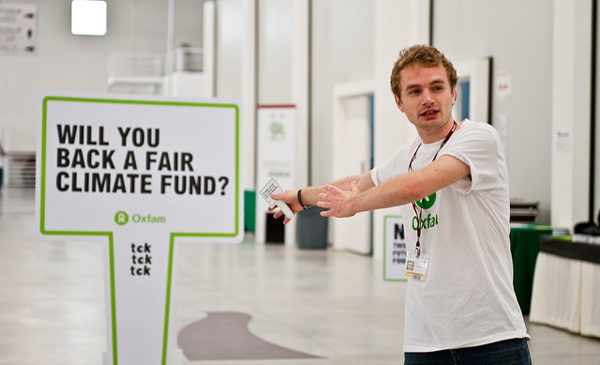Around the world, people are fighting climate change in extraordinary ways. In Thailand, Oxfam is working with rice farming communities. Innovative water pumps and new farming techniques are just two of the ways in which people are adapting.
Rich country governments have agreed to support projects like these by establishing a global ‘Climate Fund’ — a way of managing money to help poor communities adapt to climate change.
If set up properly, the Climate Fund could deliver life-saving support to those who need it most. What is needed now is for nations to come together and agree on ways to fill the fund and ensure that the money used for the Climate Fund is not taken away from aid budgets.
$100bn per year sounds like a lot of money. Can enough be raised without affecting economies and individuals?
There are a number of innovative ways that money could be raised to fill the Climate Fund that wont take money away from other essential spending. In addition to raising money through a tax on international shipping, here are two other innovative ideas that Oxfam supports.
The Robin Hood Tax – a tiny tax on banks (not the consumer) that could generate billions of dollars to support the poor. This tax is supported by some European governments and will be discussed at this year’s G20 meeting in France.
A portion of funds raised from domestic emission trading schemes, or carbon taxes, should go towards helping poor people in developing countries adapt to the devastating impacts of climate change. 32 countries already have carbon taxes or emission trading schemes in place. More countries have committed to establish them in the coming years, including Australia. If they all committed to direct some of the revenue raised to the Climate Fund this could go a long way in helping to fill it.
Read more about Oxfam and climate change



